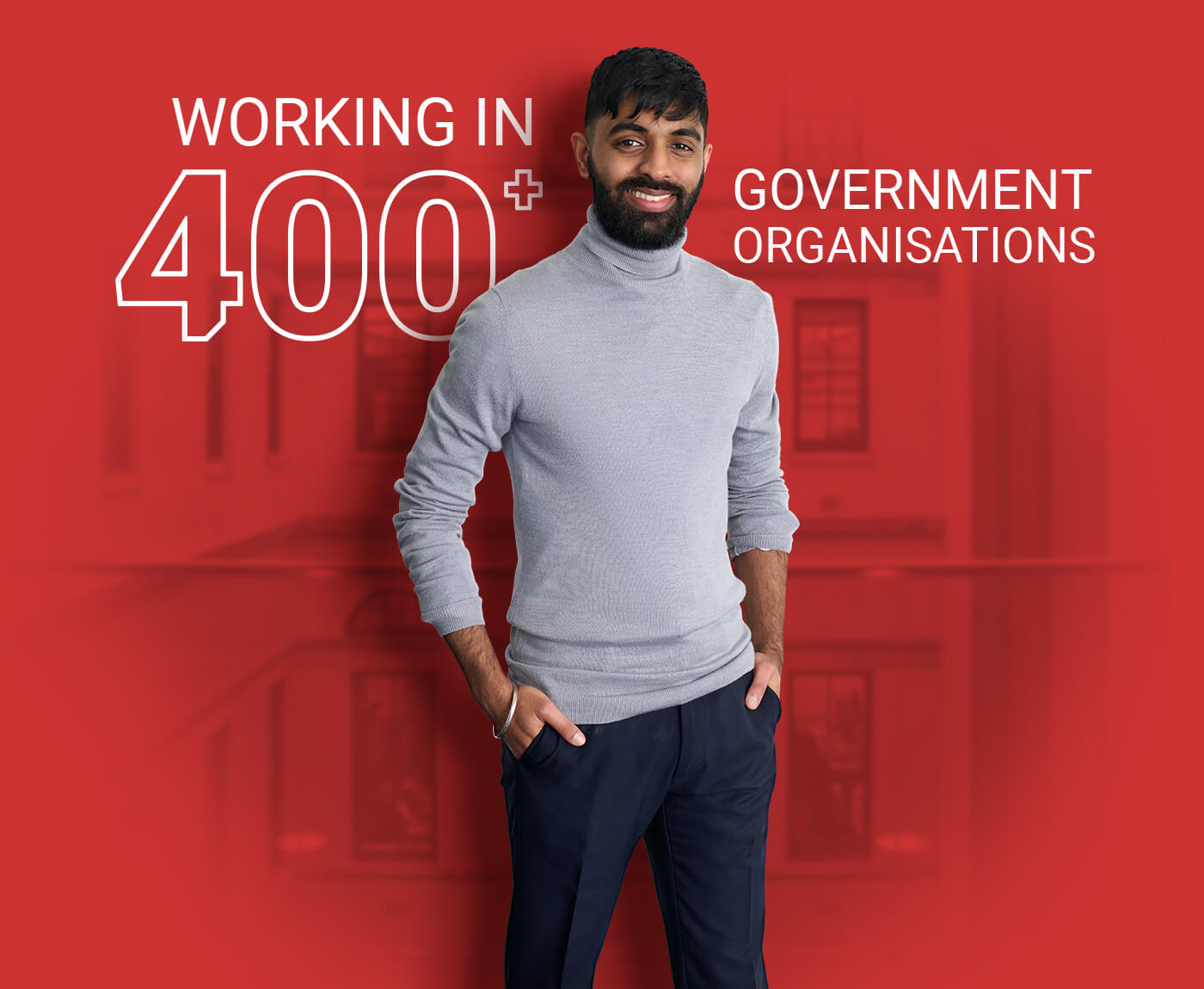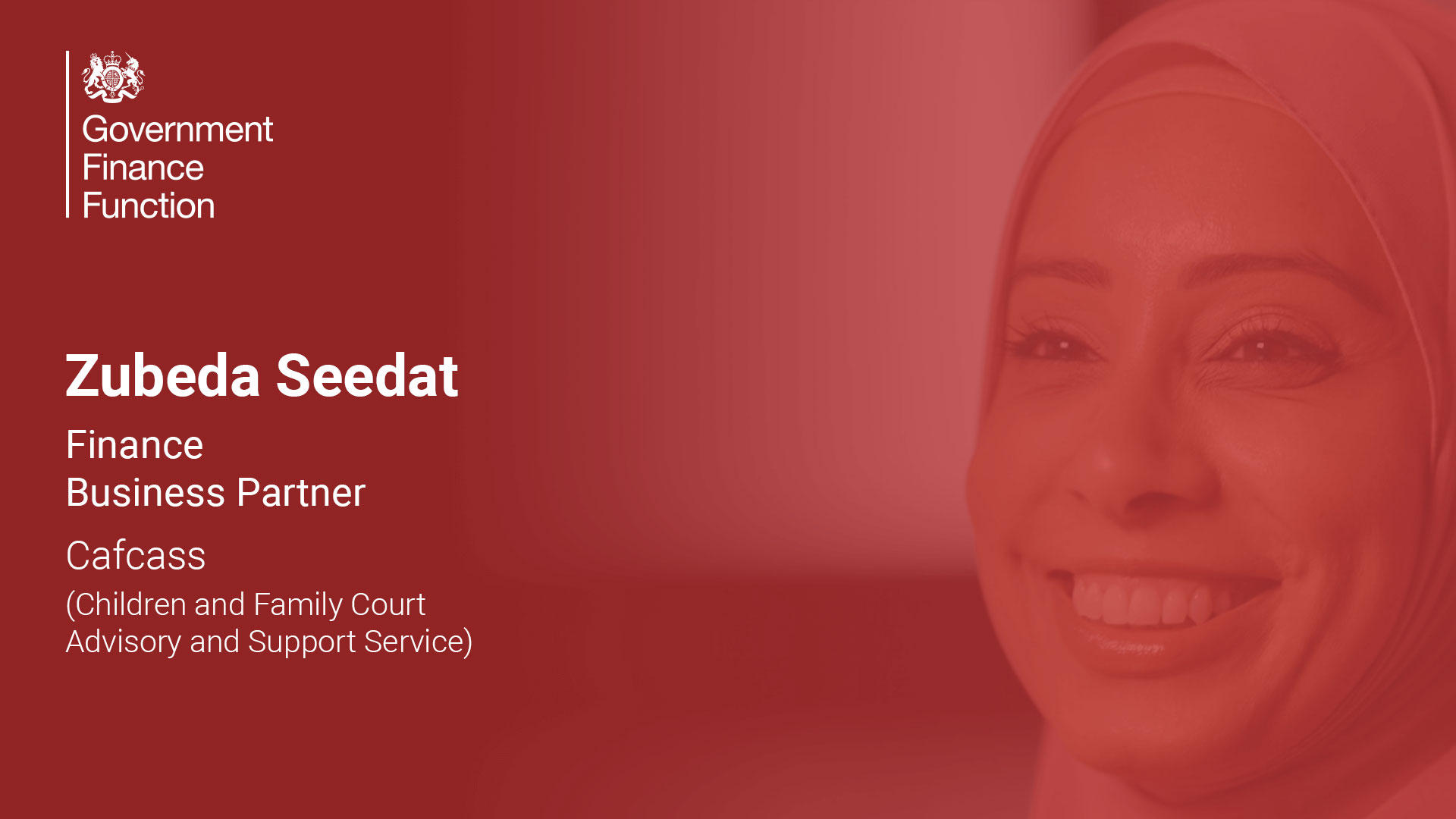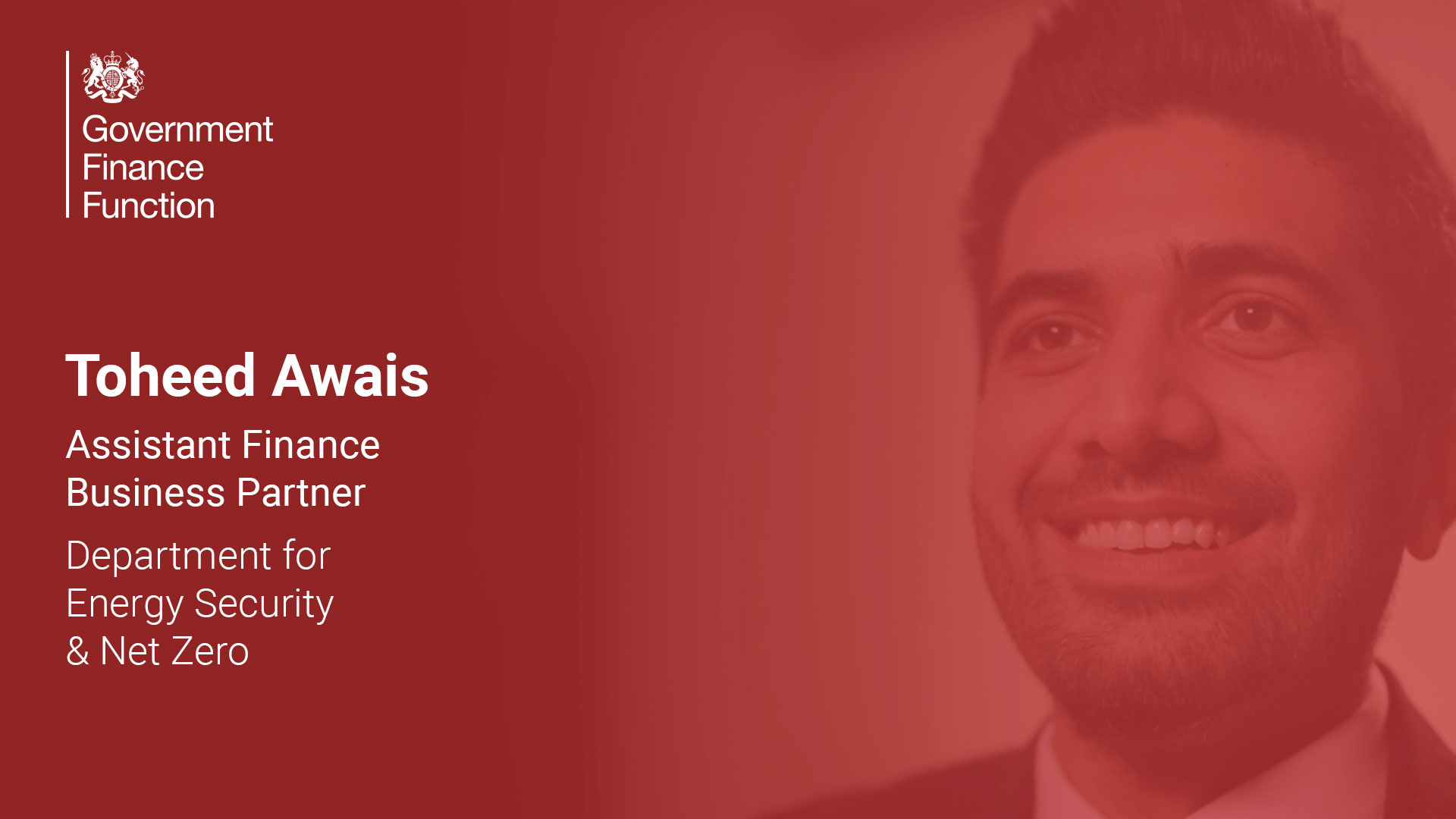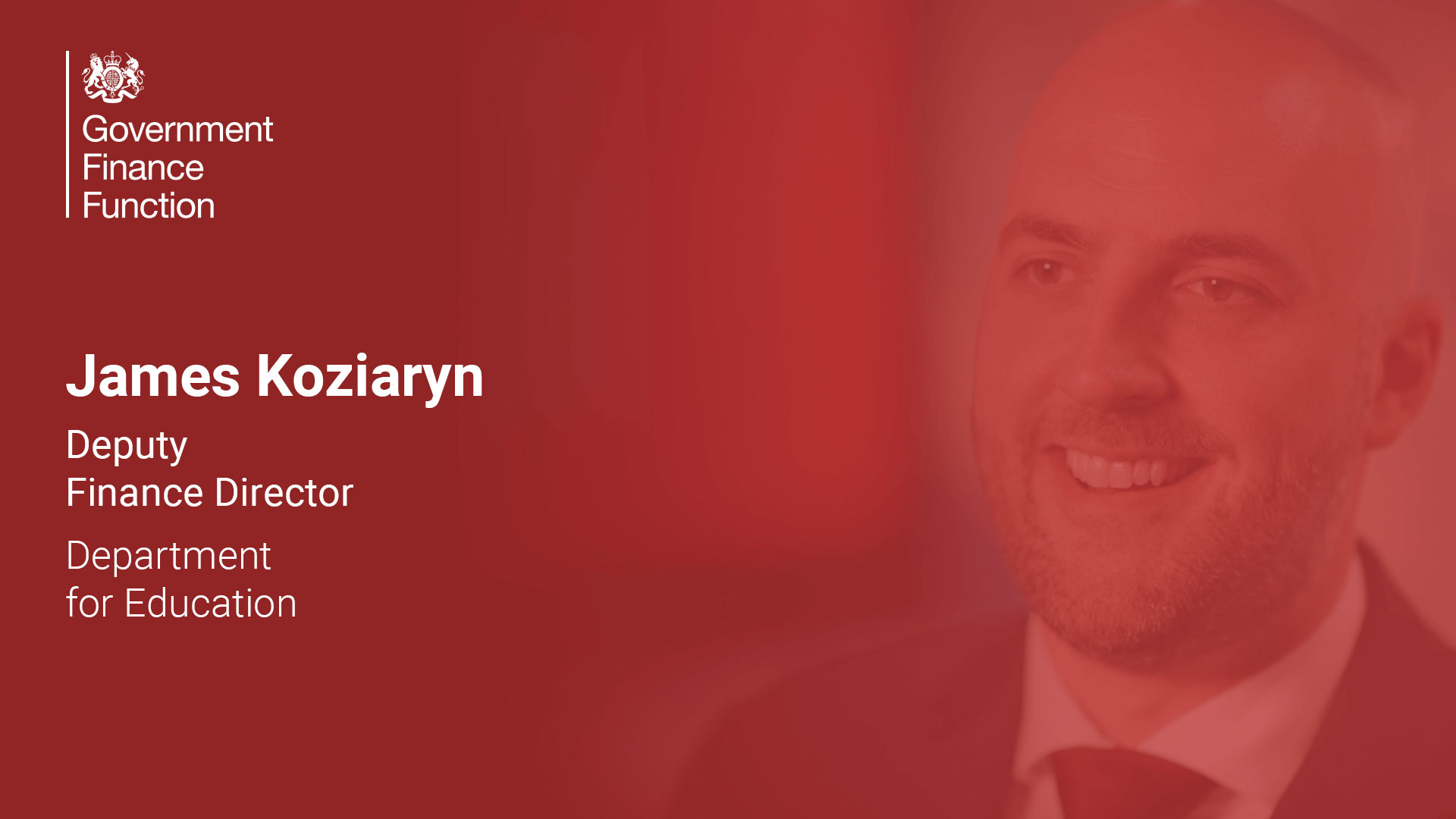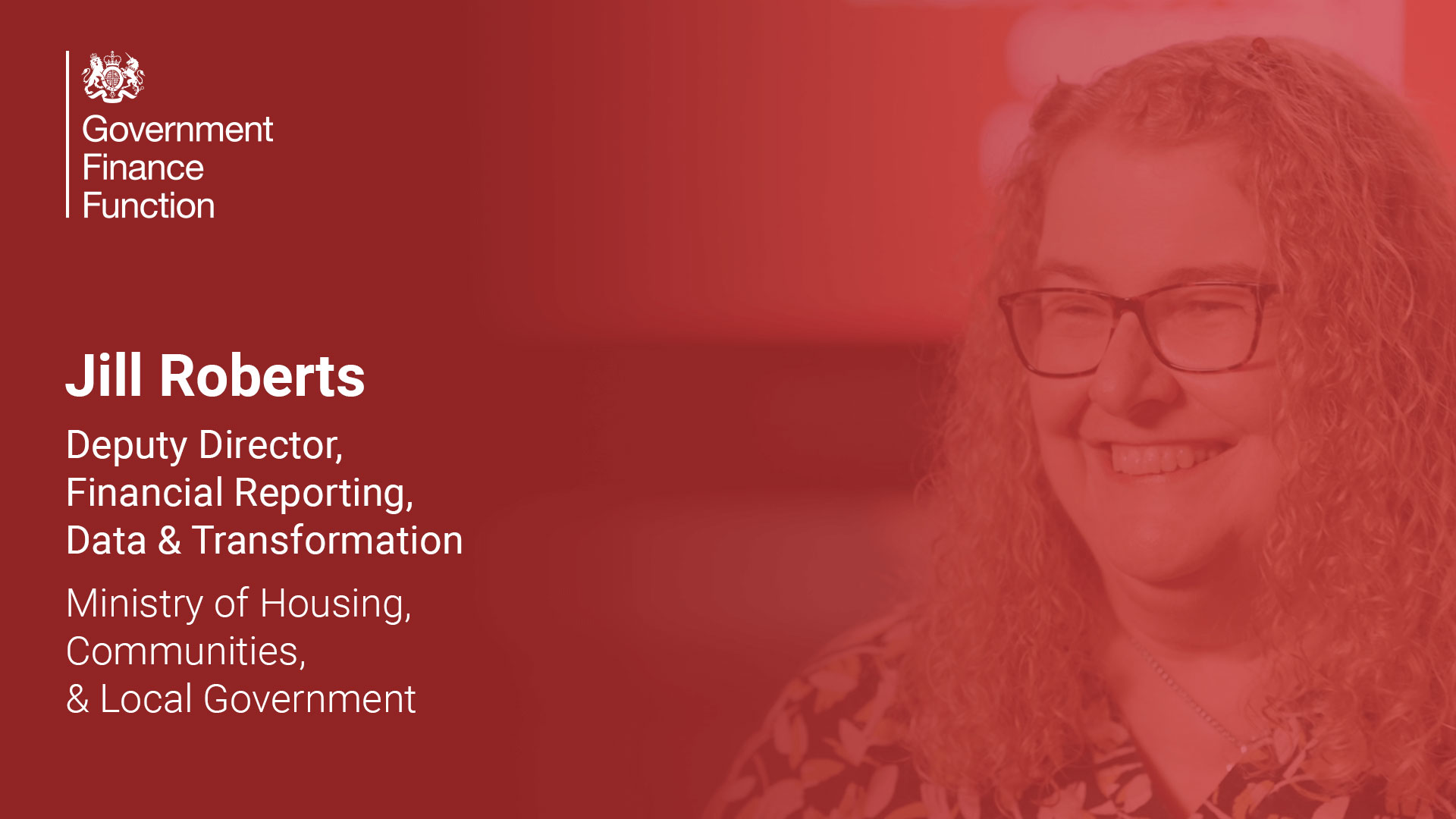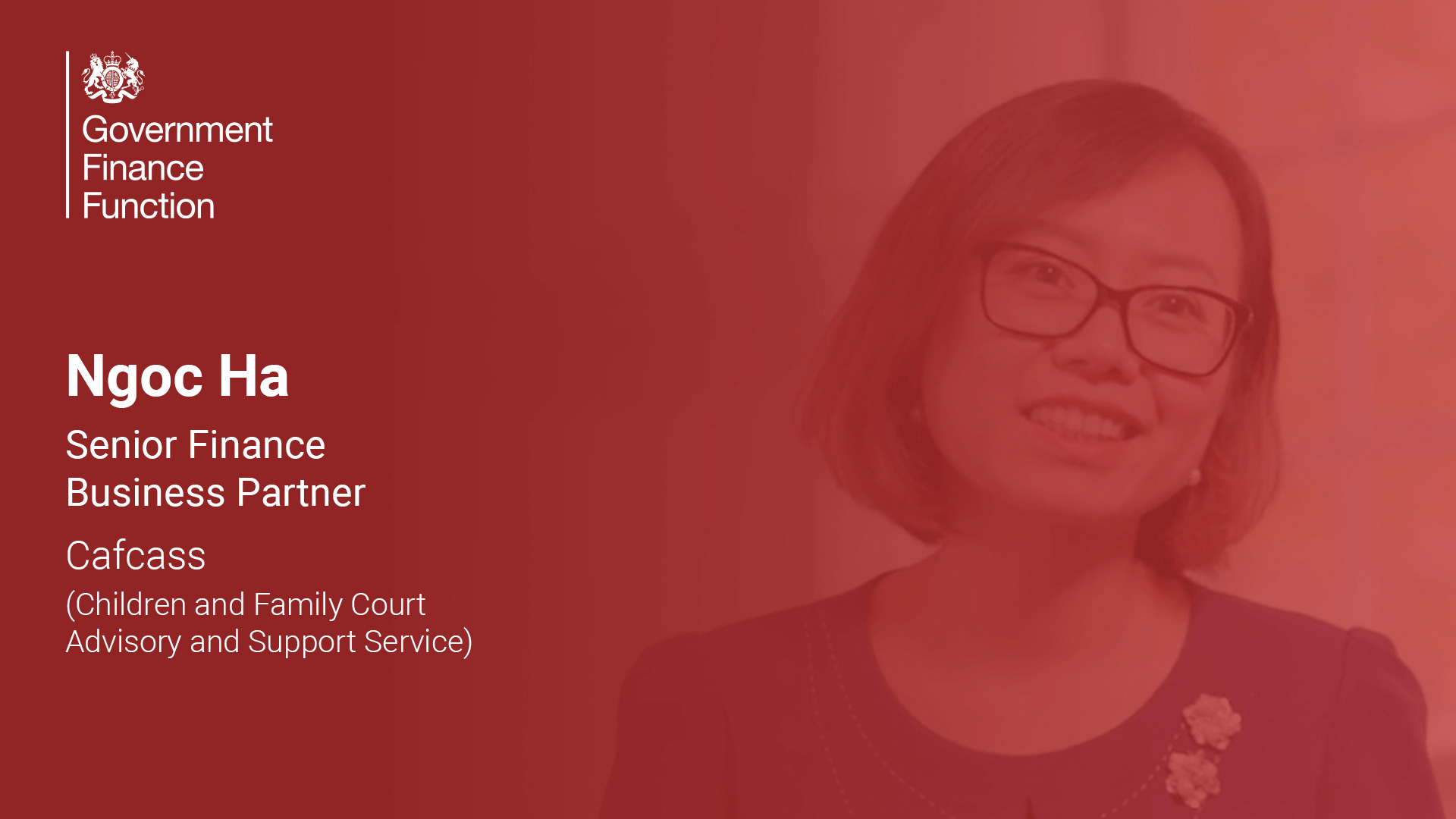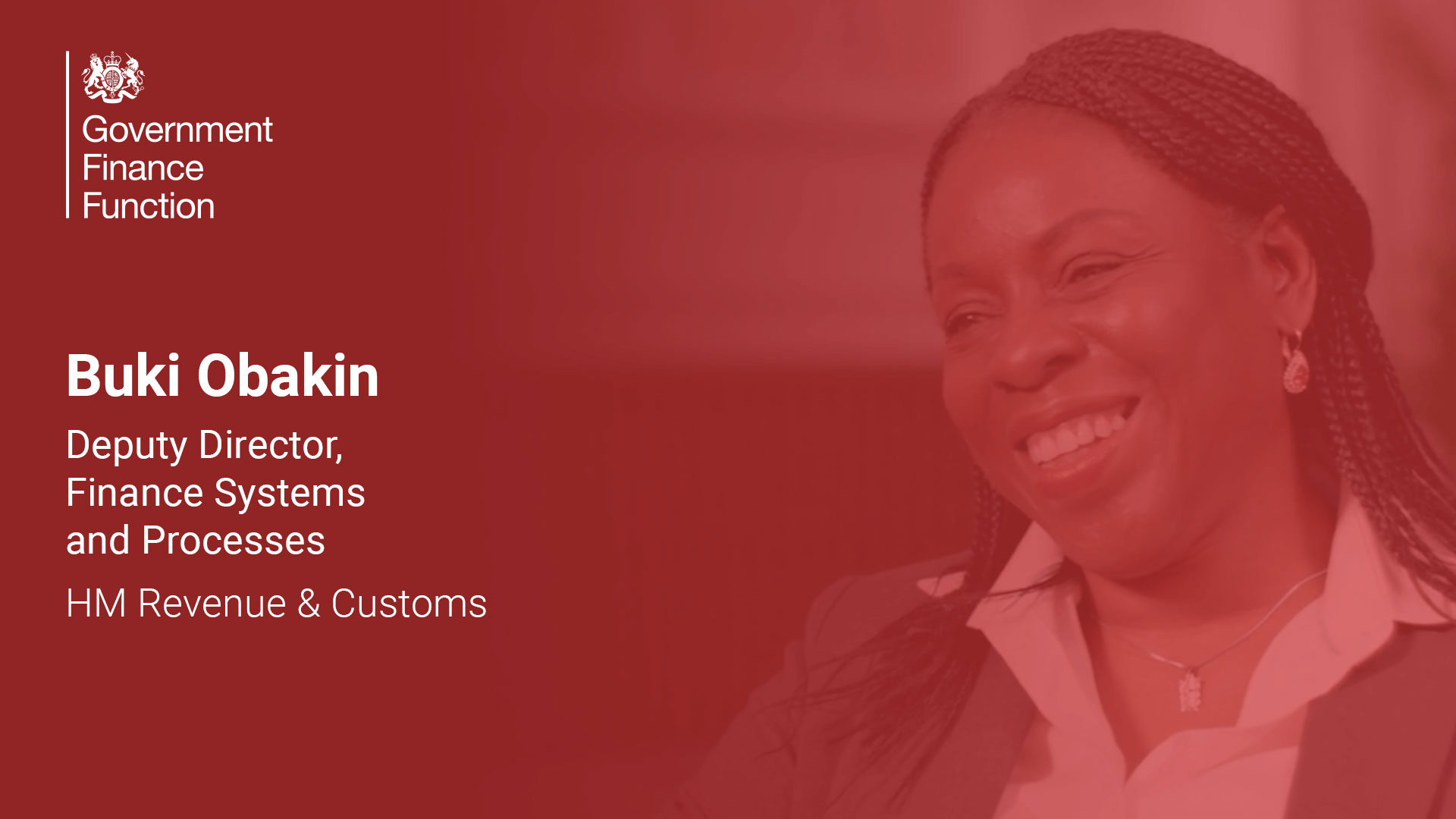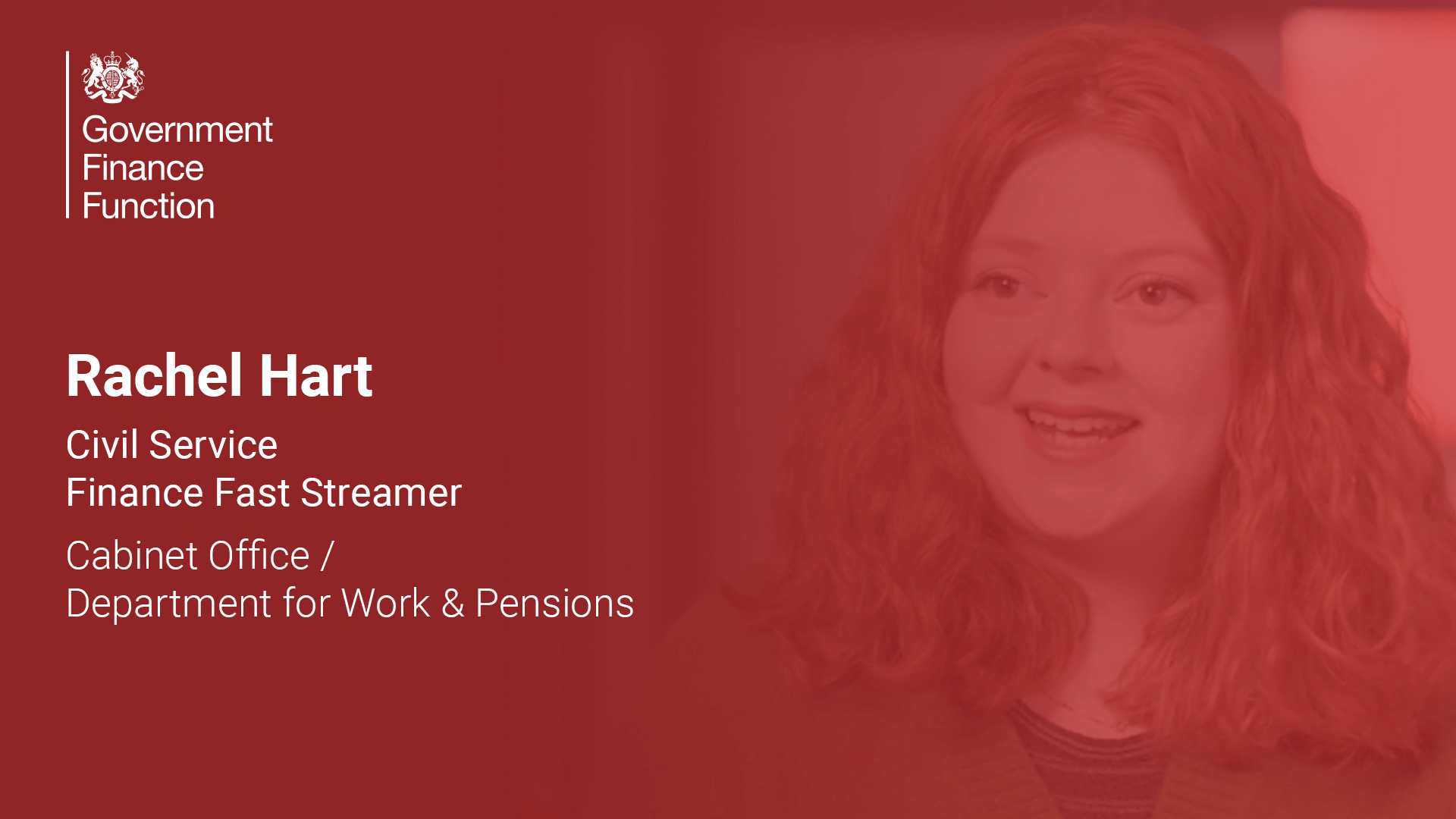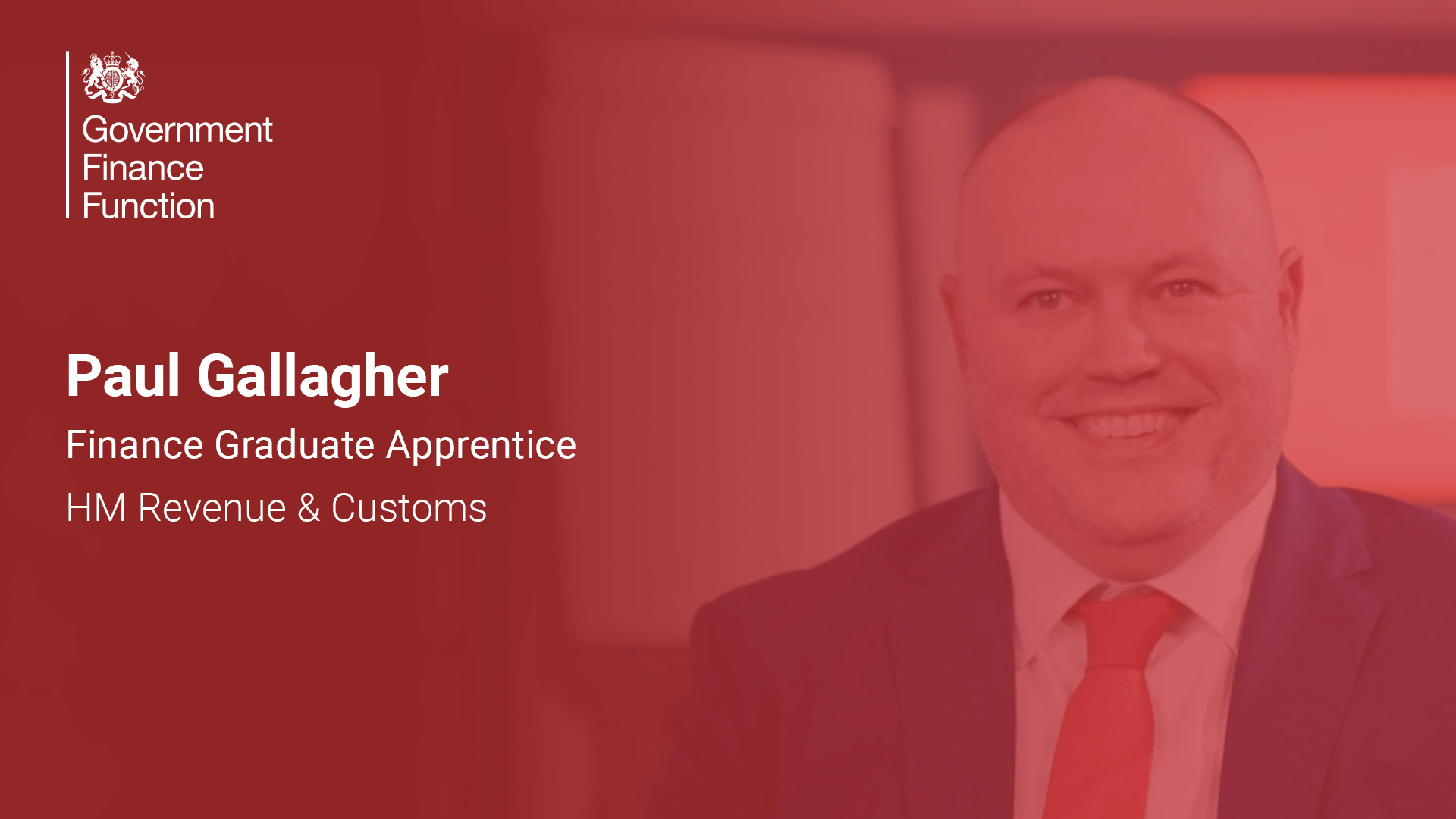Our work is challenging, rewarding and fast moving. Which is why having a community to lean on means everything. That community is the Government Finance Function (GFF).
We make sure taxpayer money is always spent effectively and meaningfully. And we do that in lots of different ways: through strategy work, complex analysis, and future-planning to name just a few.
This is a place with people at its heart. A community where we work together throughout government to do work that makes an incredible impact. This is the GFF, where there’s strength in numbers.
Hear from the former Head of the GFF, Catherine Little CB

It gives me energy knowing I'm doing my part to get value for money for taxpayers. Knowing that my work has an impact on people's lives.

We bring together people who work in government departments and arm’s length bodies all across the UK. If you work in government finance, then you’re part of the GFF.
Our work spans everything that the government does. Because without finance, great ideas can’t become real projects. Whether we’re working to reduce public debt, building strategies for the UK’s future, dealing with complex accounts and unique transactions, or crunching numbers to tease out the most cost-efficient outcome, we’re proud of the vital role we play within government.
Meet some members of our community in the videos below, as they tell us what working in the GFF means to them.

The number of children we support is a significant one. I use financial data to play a part in making the lives of those children easier, so they can have a better future.

Our projects
Here are some stories from our community members about projects they’re proud to have been part of.
I’m proud to have worked in the Commonwealth Games 2022 Delivery Unit as Deputy Director and Finance Lead. My primary role was to help keep costs down, ensure we stayed within budget, that anything spent guaranteed value for money, and that government accounting rules were followed.
Firstly, our financial responsibility at the Department for Culture, Media and Sport (DCMS) was to research, set and secure a realistic budget for the Games. This involved collaborating with different teams across government, completing lots of analysis, and then presenting the figures and our recommendations to HM Treasury. After negotiating with them, we successfully secured a budget of £778 million, with additional funds available for potential additional spend on the opening and closing ceremonies, city dressing and transport.
The Games were delivered by an external committee, but at the DCMS, finance colleagues still had a big role. We supported by liaising with stakeholders, giving regular updates on spending and budgets, and we co-ordinated different government organisations to ensure the committee had everything they needed to deliver.
The stakeholders were numerous and included West Midlands Police, West Midlands Combined Authority, and Commonwealth Games England. Internally, there were many government organisations involved too: HM Treasury, Home Office, Department for Levelling Up, Housing and Committees, to name just a few. At DCMS, we led the coordination between them all, which meant we were central to the whole process.
We delivered the games with a £100 million underspend which was a fantastic outcome. And following the Games, HM Treasury agreed to release £70 million of the underspend to invest in West Midlands legacy. To be involved in achieving that underspend, and to see it re-routed to such a great cause, was brilliant.
I’m so proud to have been involved in such a heart-warming and successful project, where I was able to see the economic and emotional benefits of the work I did come to life. It was an incredible team effort across many government teams and beyond. To be able to contribute to driving the project using my finance expertise was nothing short of a privilege.
Colin
Department for Culture, Media and Sport
I’m currently involved in a £multi-billion project in my role at the Ministry of Justice to support the creation of thousands of new prison places. It’s an incredibly interesting piece of work, and very complex too. It means working alongside my colleagues in HM Prison and Probation Service to assess investments in specific sites across the UK.
Analysing these investment proposals within a huge portfolio is a big challenge, and there are a lot of factors to balance. My role is to help ensure that decisions on which sites to invest in are well evidenced, balance value for money with feasibility, and reflect Parliamentary wishes.
Making these decisions can be difficult, and often involve a complex assessment of different risks and benefits. As finance professionals, our contribution to those assessments is invaluable. And on top of that, we also work on ensuring we can plan and forecast effectively on the portfolio as a whole. There are significant uncertainties due to the investments taking place, which means forecasts can sometimes change by hundreds of millions of pounds depending on how the building projects are going. Things like extreme weather or planning permission changes can have a big impact – it certainly keeps us on our toes.
It's fascinating to be involved in a project like this. And it’s just one part of my role within the Ministry of Justice. In my day-to-day, I’m responsible for managing £5 billion of running costs, and I work with leaders across the prison and probation services to do it. I also visit prisons regularly, speaking to prisoners, prison officers, governors and support staff to really understand what their challenges are, and how we can make things better.
It's so interesting exploring what drives good performance across prisons and the probation service, and to see how it varies across the country. I’ve seen first-hand how finance supports the front-line by making meaningful investments that remove barriers.
I also get significant benefit from being part of the GFF. I’ve had sponsorship to complete further training from colleagues in different departments, because of the connections I’ve made. And I jointly lead a cross-government working group to improve forecasting across the board. There are so many opportunities to have influence and drive improvements throughout government. That’s what makes things so exciting.
Caroline
Ministry of Justice
During the Covid-19 pandemic, HM Revenue and Customs (HMRC) was responsible for delivering the Coronavirus Job Retention Scheme (CJRS) and the Self-Employment Income Support Scheme (SEISS). These schemes supported employers with grants that protected jobs affected by the pandemic and made grant payments to self-employed individuals who were unable to work due to social distancing rules, respectively.
The schemes were big projects to deliver and needed input from many different professions. We collaborated with teams across HMRC including colleagues from Banking, Strategic Finance, Risk and Control, Operational Delivery, Communications and Legal teams to design the schemes and provide advice to stakeholders about how they would work.
We also worked closely with HM Treasury for their input on the design of the schemes. To secure the £50 billion needed to make the payments, we also worked closely with HM Treasury’s Banking team and the Bank of England. It was a great example of the cross-government work you can expect working in the GFF. And helping to manage such a large transfer through the UK banking system was a really interesting thing to be part of.
The outcome of our work was that schemes were all arranged and delivered in line with ministerial commitments. The grants were paid to recipients on time, giving them vital financial support while also keeping the economy functioning during a nationwide lockdown.
It was a privilege to be part of a project that helped so many people. The time-sensitive nature of the work made it pressurised, but the sense of pride and relief when the £50 billion transfer was successfully made to HMRC so we could deliver the scheme, will stay with me for a long time.
Francesca
HM Revenue and Customs
The Covid-19 pandemic resulted in a big rise in unemployment across the UK. And that meant we were receiving more Universal Credit claims than ever before. Meeting the rise in demand was a struggle, so we needed to adapt our service quickly. Our job in finance was to understand what options the DWP had, analyse them, and then present our findings in an engaging way that got people on board with our vision.
Collaborating with our colleagues all throughout government, we spoke with business change experts, HR, operations teams and more, bringing everyone together to give their input, while keeping finance at the core of everything. We did a lot of analysis, including a cost/benefit analysis and sensitivity analysis on each of our options to understand how to get the best value for money, while being mindful of the impact on the people coming to us for help.
Once we’d understood the full picture, the next step was to put our numbers into a narrative for decision-makers. Getting them on board was key to securing the investment we needed. It had to be simple and easy to digest, and it also had to speak to their priorities, which in this case was seeing a return on investment.
Through our analysis, we were able to show that the proposed transformation would create a strong return on investment in the future. Add into that the real-world benefit for the people who needed our help, and we were able to convince decision-makers that investment was a good idea.
The outcome was that we were successful in securing the funding needed to transform our service at the DWP. It meant we were able to invest in new systems and the growth of our team, increasing our ability to cope with demand. That investment also meant helping even more people across the UK access the support they needed during a difficult time.
It felt amazing to be part of this work. It demonstrated the tangible difference that finance can make to people across the UK. And on top of that, it was a brilliant career challenge. Being at the core of a team that stretched throughout government, into so many different teams, was inspiring. And driving everything forward with finance, seeing the power that numbers can have – it’s something I’ll always be proud of.
Mark
Department for Work and Pensions
At the Ministry of Defence, we’re responsible for protecting the UK’s citizens and interests at home and overseas. So, our work is not only deeply rewarding, but very interesting too. Managing risk is extremely important to our work. Avoiding surprises by planning ahead and adapting our processes is critical to ensuring we can always fulfil our important service for the UK public, even in the face of unexpected events.
As Chief Risk Officer, I had overall responsibility for ensuring effective risk management and assurance arrangements are implemented throughout the department. To do that, my days are incredibly varied. On any given day I could be meeting government minsters face-to-face for meetings, running workshops for senior military officers, analysing the risk implications of buying a new piece of military equipment, or discussing sensitive strategic risks internally. I also spend time visiting different military establishments, to better understand and advise on their work and processes.
Managing risk within the department is closely related to what’s going on in the world. Events like the Covid-19 pandemic and Russia’s invasion of Ukraine show that the extraordinary things we know could happen, but don’t expect, do happen. The work we do as risk management professionals supports work all throughout government by helping decision makers understand their risk exposure, building resilience and helping to ensure value for money for the taxpayer too.
Simon
Ministry of Defence
In my first audit at the Civil Service, I was part of a team that conducted an open-book accounting review of charges from a major supplier that worked with the Department for Environment, Food and Rural Affairs (Defra). The work involved taking samples of spending with this supplier from across the department, and then evaluating each sample to check for errors or inconsistencies.
During our audit, we found some inaccuracies in the amounts that had been paid. To evidence them for senior Defra colleagues, we put together a report that summarised them. It was important that the report was well-evidenced, accurate and detailed, so our evaluations could be trusted. Our work was effective and, after presenting the report, it was used by senior colleagues to approach the supplier with the findings.
Following the audit, a significant refund was agreed between Defra and the supplier. It was a huge boost for our internal audit team, and helped raise our profile – meaning we were approached to help our colleagues more often.
Auditing is such an important part of government finance, because it ensures we’re doing all we can to catch potential errors that, once resolved, save taxpayer money. This project was an amazing and interesting one to be part of, particularly so early on in my Civil Service career. It really showed the impact that auditing can have on our overall purpose within the Government Finance Function, to ensure we’re getting value for money.
Martin
Department for Environment, Food and Rural Affairs

I feel part of what the government is doing. Whether that's providing housing, supporting the economy, education or training. In finance, we contribute to all of it.

We’ve got a vision for our future. And it’s all about keeping finance at the heart of government decision-making. Because that’s how we achieve better outcomes for communities right across the UK. We ensure value for money. And we build trust with the people we serve.
We've got six priorities:
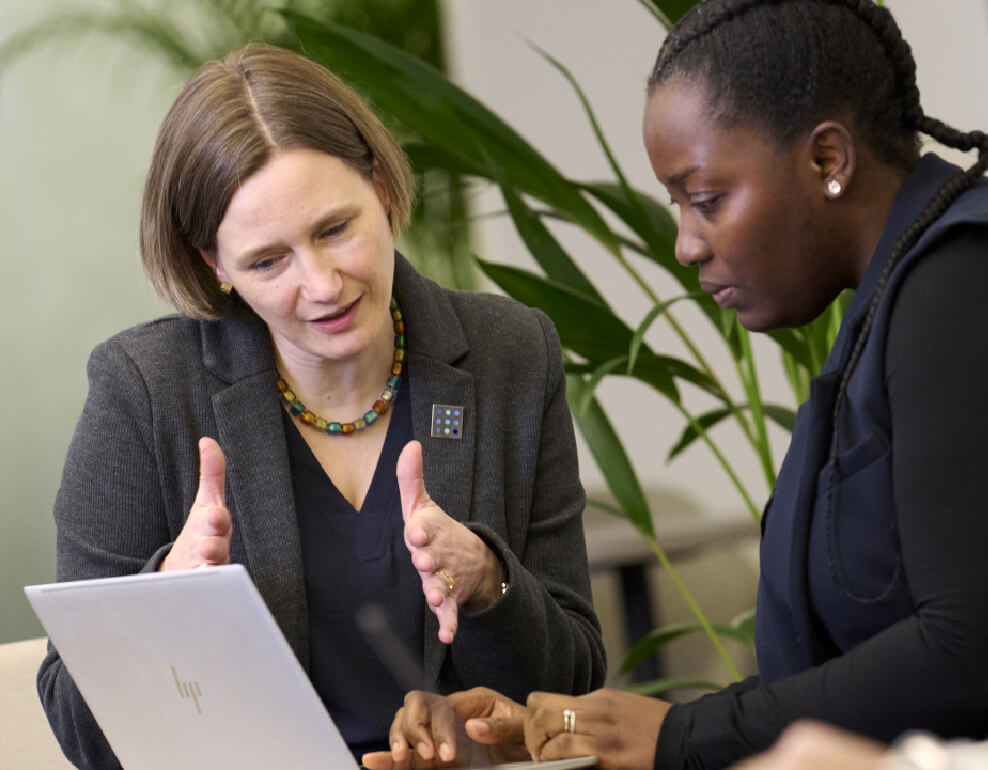
Efficient processes. Robust data. Accurate and timely reporting. These are the finance fundamentals that underpin our work, so we’ve got to make them as strong as possible.
Find and keep great people working within government finance. And make sure everyone’s got access to training, learning and development opportunities.
Implement cross-government data standards. Design processes that make our work even more efficient. Be innovative, embracing new tech that can transform our ways of working.
Find new, impactful ways to tell the story of our data. Visualise our analysis to help everyone across government understand why there’s strength in numbers.
Make positive, practical actions to further embed diversity and inclusion across the GFF. Engage with a diverse recruitment audience to help boost representation, equal opportunities, and diversity of perspectives.
Continue delivering value for taxpayers and positively benefiting lives across the UK through our work. And keep adapting, so we can manage risks.

In my career, I've worked in Health, Education, Business and Science, in locations all throughout the UK. I've helped shape decisions which have had a huge impact on the public.

The GFF community is made up of finance professionals working throughout government, along with some external agencies and other public bodies too. That means you’ll find us in every organisation you can think of, across all parts of the UK (and some overseas locations too). Remember: working in government finance means being part of the GFF, but you’ll be employed by a government organisation, not by us.

